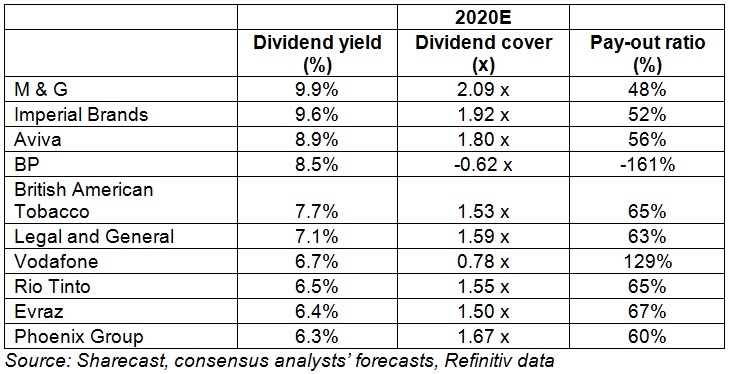Shares in telecoms giant Vodafone (VOD) gained 3.5% to 123.7p after it reported slightly better than expected top-line earnings and kept its dividend unchanged.
Overall revenues dropped 2.3% to €21.4 billion, but service revenues were just 0.8% lower compared with market forecasts of a 2.3% drop.
Pre-tax profit for the six months through September amounted to €1.56 billion, compared to a loss of €1.89 billion year-on-year, while operating profit jumped to €3.47 billion, up from €577 million.
Telecom providers are making less from their roaming services due to travel restrictions imposed due to the Covid-19 pandemic.
But in a boost for income investors, the company kept its interim dividend unchanged at $0.045 per share. Vodafone also reaffirmed its free cash flow guidance of at least €5 billion and adjusted earnings before interest, taxes, depreciation and amortisation (EBITDA) of between €14.4 billion and €14.6 billion.
The company is forecast by analysts to be the seventh-highest dividend payer in the FTSE 100 in cash terms in 2020 and is currently the eighth-highest yielding stock in the index, based on those consensus estimates.
DIVIDEND CUT ‘DISTANT MEMORY’
AJ Bell investment director Russ Mould said the reiterated guidance for cash flow and adjusted earnings should make the dividend cut of 2019 a ‘more distant memory’, but warned Vodafone has ‘much to do’ if it is to build a progressive dividend policy again, let alone to repeat the ‘phenomenal run’ of dividend increases that ran from 1998 through to two years ago.
He said, ‘The company still faces fierce competition on all fronts - mobile, broadband and cable - in the key markets of Germany, Italy, Spain and the UK which between them represent two-thirds of the first half’s interim profit.’
Vodafone also has to contend with a €44 billion net debt pile, while the company also needs to maintain investment in fifth-generation (5G) mobile spectrum and network equipment to maintain and protect its competitive position.
Mould continued, ‘These challenges, plus the near-term difficulties caused by the pandemic, notably the fall in cross-border roaming fees as international travel plunges, help to explain why Vodafone’s shares trade no higher than they did in April 2002, when the tech, media and media bubble was collapsing and the degree to which Vodafone had overpaid to buy German mobile network operator Mannesmann was becoming frighteningly clear.’



